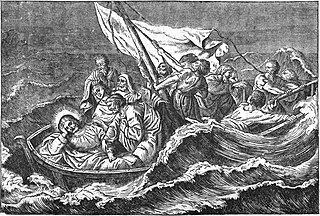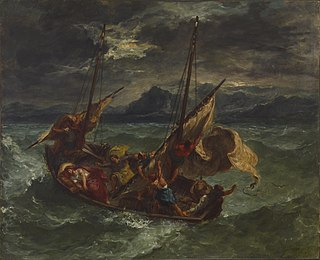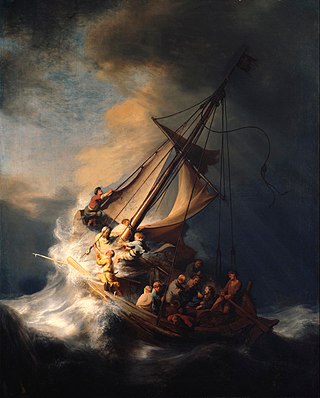
Matthew 12:39 is the 39th verse in the twelfth chapter of the Gospel of Matthew in the New Testament.

Matthew 9:6 is the sixth verse in the ninth chapter of the Gospel of Matthew in the New Testament.
Matthew 9:10 is a verse in the ninth chapter of the Gospel of Matthew in the New Testament.

Matthew 11:7 is the seventh verse in the eleventh chapter of the Gospel of Matthew in the New Testament.

Matthew 10:5 is the fifth verse in the tenth chapter of the Gospel of Matthew in the New Testament. In sending out the apostles on their first mission, Jesus directs them as to where they are not to go.

Matthew 9:25 is the 25th verse in the ninth chapter of the Gospel of Matthew in the New Testament.
Matthew 9:24 is a verse in the ninth chapter of the Gospel of Matthew in the New Testament.

Matthew 8:14 is the fourteenth verse of the eighth chapter of the Gospel of Matthew in the New Testament. This verse and the following verse constitute a "simple short story" in which Jesus heals Peter's mother-in-law.

Matthew 8:22 is the 22nd verse in the eighth chapter of the Gospel of Matthew in the New Testament of the Christian Bible.

Matthew 8:23 is the 23rd verse in the eighth chapter of the Gospel of Matthew in the New Testament of the Christian Bible.

Matthew 8:26 is a verse in the eighth chapter of the Gospel of Matthew in the New Testament.

Matthew 8:27 is a verse in the eighth chapter of the Gospel of Matthew in the New Testament.
Matthew 12:8 is the eighth verse in the twelfth chapter of the Gospel of Matthew in the New Testament.

Matthew 14:31 is a verse in the fourteenth chapter of the Gospel of Matthew in the New Testament.

Matthew 14:25 is a verse in the fourteenth chapter of the Gospel of Matthew in the New Testament which refers to Jesus walking on water.

Matthew 14:30 is the 30th verse in the fourteenth chapter of the Gospel of Matthew in the New Testament.

Calming the storm is one of the miracles of Jesus in the Gospels, reported in Matthew 8:23–27, Mark 4:35–41, and Luke 8:22–25. This episode is distinct from Jesus' walk on water, which also involves a boat on the lake and appears later in the narrative.

The calling of the disciples is a key episode in the life of Jesus in the New Testament. It appears in Matthew 4:18–22, Mark 1:16-20 and Luke 5:1–11 on the Sea of Galilee. John 1:35–51 reports the first encounter with two of the disciples a little earlier in the presence of John the Baptist. Particularly in the Gospel of Mark, the beginning of the Ministry of Jesus and the call of the first disciples are inseparable.

John 1:38 is the 38th verse in the first chapter of the Gospel of John in the New Testament of the Christian Bible.

This narrative is told in Luke 5:1-3, Mark 4:1, and Matthew 13:1-3. Owing to the vast crowds that followed him from the surrounding towns and villages to listen to his doctrine, Jesus retired to the sea coast. There he entered a boat, that he used as a pulpit, and addressed the crowd on the shore.

















